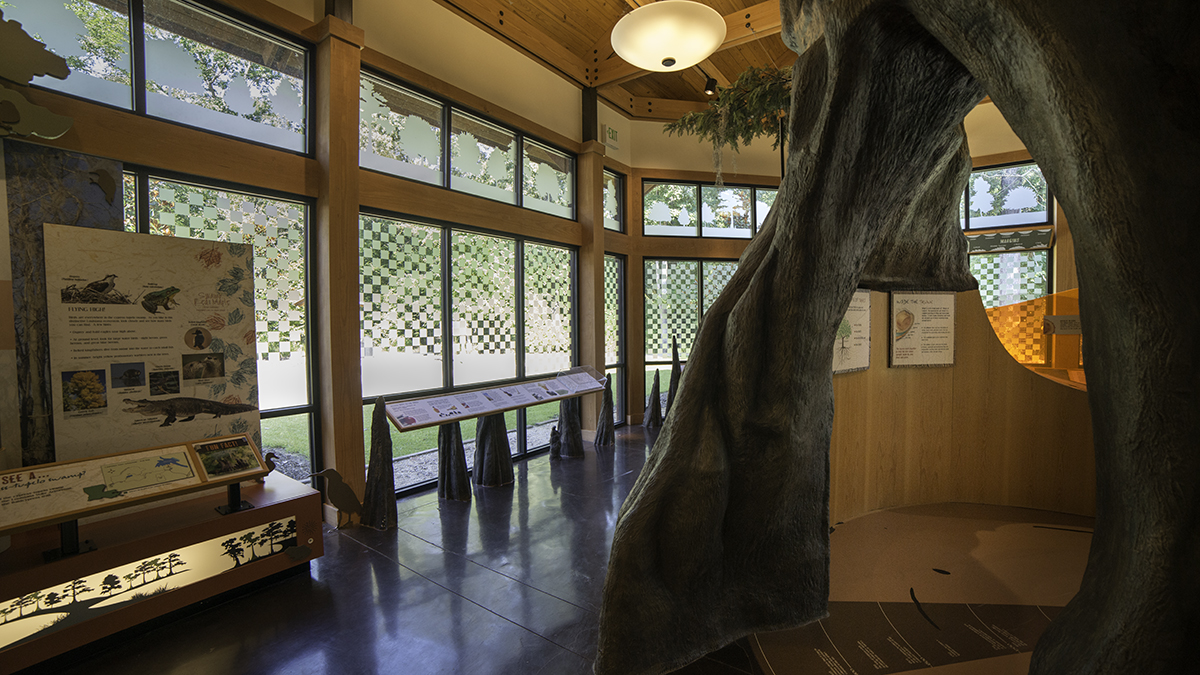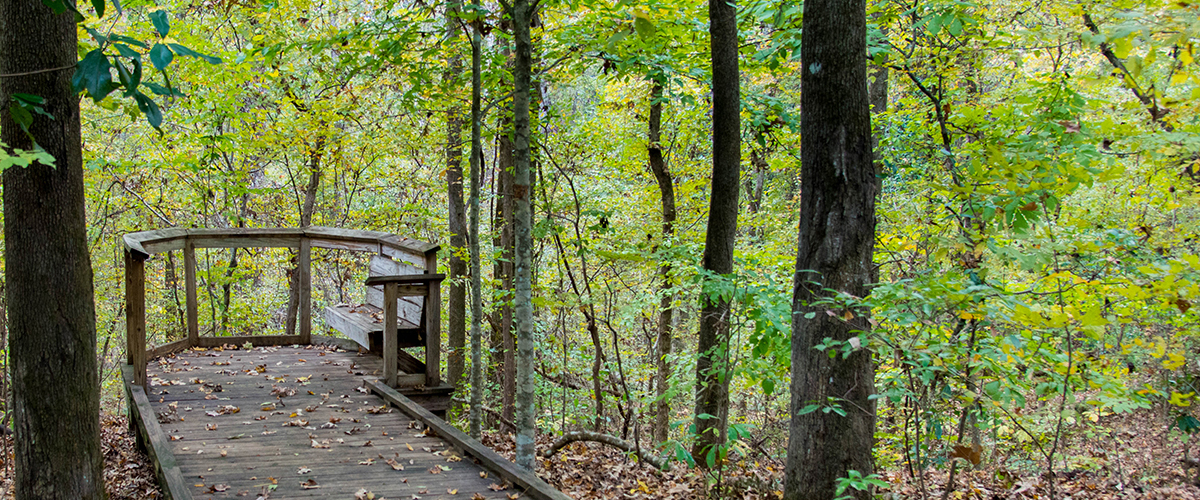Louisiana State Arboretum
Naturalist, artist, and author Caroline Dormon, who worked as a forestry educator for the Louisiana Department of Conservation's Forestry Section in the 1920s, first suggested the idea of a State Arboretum. Her goal was to create a State Arboretum to educate all Louisianans about the importance of trees. Dormon authored and illustrated several books about native plants and was instrumental in the establishment of Kisatche National Forest.
Mrs. A. G. "Sudie" Lawton, a good friend of Ms. Dormon, became a State Park and Recreation Commission Board member in 1957. J.D. "Prof" Lafleur, a retired principal from Ville Platte, and a Rotarian, made a presentation at a Commission meeting that year elaborating on the beautiful centuries old trees in Chicot State Park. His speech was so eloquent that Mrs. Lawton asked him to show her this place he described, for "it sounds like a perfect place for a State Arboretum." After seeing Chicot State Park Lawton and Lafleur collaborated to create the first state supported Arboretum in the United States.
In May of 1961, the State Parks and Recreation Commission headed by chairman, W.A. Wilson, and the Louisiana State Parks Director, Leroy A Talley, ordered the creation of the Louisiana State Arboretum and set aside 301 acres in Chicot State Park for the project. J. Ellis Dupre, Mrs. Joel Guillory, and Anthony Abdalla donated additional land for the entrance gate.
Dormon was a consultant and provided many of the original plantings for the arboretum. In a letter dated January 30, 1968 to Prof Lafleur, Dormon stated "I want you to come get a few things (plants from her home in north Louisiana, Briarwood, now a Nature Preserve) for the arboretum before spring gets here...they are most attractive but no nursery has them for sale."
Dormon and Lafleur's aim was to develop an area that would attract botanists, students, horticulturists, youth groups, and tourists from all over the world. Together they attracted many organizations from throughout the state to support and fund the establishment of the Arboretum.
The Arboretum was officially dedicated in April of 1964 and serves as an area set aside for the growing and protection for all trees and shrubs native to Louisiana. In 1966 the Louisiana legislature named the Caroline Dormon Lodge, completed in 1965, in honor of the noted naturalist. Today the lodge holds an exhibit dedicated to Ms. Dormon.
The Arboretum is now over 50 years old and going strong!
Since its beginning in 1964 the Arboretum has grown - it now contains 600 acres, has nearly six miles of hiking trails, and a 6,000 square foot Nature Center in addition to the Caroline Dormon Lodge.

In 2009, under the direction of Jim Robinson, Arboretum manager until 2012, the Arboretum opened the Nature Center, named in honor of J.D. "Prof" LaFleur. It houses a beautiful, state of the art interactive exhibit on Louisiana's woodlands. Trails were built to link the new center to the old trail system, and over the years, boardwalks were built to help improve access during rainy weather.
When the Arboretum's trail system doubled to nearly six miles, connecting the new Nature Center with the older system, no funding was allocated for signage to interpret the new trails or to replace the deteriorating signage on the already established three miles of trails through the arboretum's beautiful rolling hills and creek bottoms. Thanks to a major fundraising initiative of the Friends of the Arboretum this situation was dramatically remedied in 2014 with the complete replacement of all existing signage and the creation of many new signs. A total of 137 beautiful, full color signs with interpretive text, drawings and color photographs now grace the trails.
The Arboretum's staff naturalists lead tours for children and adults all year long and organize special events such as pine needle basket weaving, Insect Day and birdwatching. Information about these activities can be found on the Arboretum's blog http://louisianaarboretum.wordpress.com/, on Facebook https://www.facebook.com/pages/Louisiana-State-Arboretum/195356380483124 and on the Louisiana State Parks Calendar of Events http://www.crt.state.la.us/louisiana-state-parks/news-activities/calenda... (click on Louisiana State Arboretum). Groups of ten or more visitors are invited to request in advance an individual program for their group by the staff naturalists.
The Arboretum has become an ever more valuable teaching tool as well as a peaceful, beautiful place to walk thanks to the dedication of the Arboretum's staff naturalists and the Friends funding the new signage. The real beneficiaries of this will be the over 10,000 people each year who visit the arboretum's winding and hilly trails - many from Louisiana , but also the visitors from other regions in the United States, Canada and many from France. School groups of all grades from St. Landry, Evangeline, Rapides, Avoyelles, Allen, and Lafayette parishes visit the arboretum to hike and learn about trees in this beautiful outdoor classroom.

